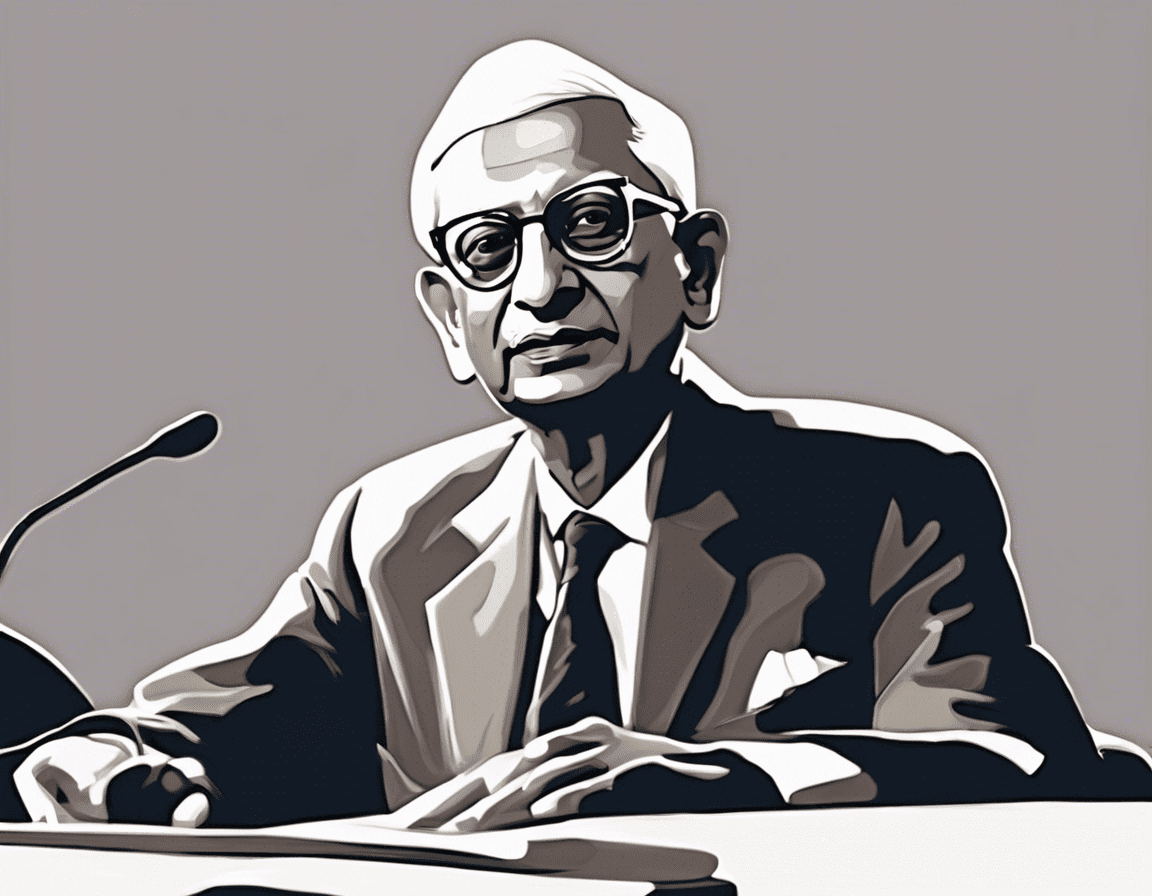Connect
Exploring the Legacy of Morarji Desai: A Visionary Leader.

Morarji Desai is a name that resonates deeply in Indian history as a visionary leader who made significant contributions to the political landscape of the country. Serving as the Prime Minister of India from 1977 to 1979, Desai’s legacy extends far beyond his tenure in office. His principles, policies, and the impact he had on the nation continue to influence contemporary politics and society. In this article, we will delve into the life and legacy of Morarji Desai, highlighting his key achievements, ideologies, and lasting influence on Indian politics.
Early Life and Political Journey
Born on February 29, 1896, in Bhadeli, Gujarat, Morarji Desai began his career as a civil servant in the British government. It was during his time in the civil services that Desai witnessed firsthand the oppressive colonial rule, which fueled his desire to work towards India’s independence. His entry into politics was marked by his association with the Indian National Congress and his active participation in the freedom movement.
Desai played a crucial role in various civil disobedience movements and was imprisoned multiple times for his involvement in the struggle for independence. His steadfast commitment to non-violence, integrity, and democratic values earned him respect among his peers and the public alike.
Prime Ministership and Key Policies
Morarji Desai assumed office as the Prime Minister of India in 1977, marking a significant juncture in the country’s political narrative. One of his most notable achievements during his tenure was his emphasis on administrative reforms and anti-corruption measures. Desai’s government introduced several groundbreaking policies aimed at promoting transparency, accountability, and efficiency in governance.
His commitment to fiscal responsibility and economic stability led to the successful implementation of measures to curb inflation and address the balance of payments crisis. Desai’s emphasis on agrarian reforms and rural development initiatives aimed to uplift the rural poor and bridge the urban-rural divide.
Ideologies and Philosophy
Morarji Desai was known for his unwavering adherence to Gandhian principles and ethical governance. His simplicity, honesty, and dedication to public service set him apart as a leader of integrity. Desai’s emphasis on self-reliance and sustainable development resonated with his vision of a prosperous and equitable society.
His belief in decentralization of power and promotion of local governance reflected his commitment to grassroots democracy. Desai’s advocacy for prohibition and promotion of traditional Indian values showcased his deep-rooted convictions and cultural ethos.
Legacy and Impact
Morarji Desai’s legacy as a visionary leader continues to inspire generations of politicians and citizens alike. His contributions to nation-building, social reform, and economic development have left an indelible mark on Indian politics. Desai’s emphasis on transparency, integrity, and good governance serves as a guiding light for those in positions of power.
His legacy also extends to his advocacy for world peace and nuclear disarmament. Desai’s efforts to promote dialogue, understanding, and cooperation on the global stage highlighted his role as a statesman committed to broader humanitarian causes.
Frequently Asked Questions (FAQs)
1. What were Morarji Desai’s key contributions to Indian politics?
Morarji Desai made significant contributions to Indian politics through his emphasis on administrative reforms, anti-corruption measures, and agrarian reforms aimed at rural development.
2. How did Morarji Desai’s Gandhian principles influence his governance style?
Desai’s adherence to Gandhian principles such as simplicity, honesty, and ethical governance shaped his approach to leadership and policymaking, emphasizing integrity and public service.
3. What was Morarji Desai’s stance on economic policies during his tenure as Prime Minister?
Desai focused on fiscal responsibility, economic stability, and sustainable development, implementing measures to address inflation, the balance of payments crisis, and promote self-reliance.
4. How did Morarji Desai promote grassroots democracy and local governance?
Desai advocated for decentralization of power and local governance structures to empower communities and strengthen democracy at the grassroots level, reflecting his belief in participatory decision-making.
5. What is Morarji Desai’s lasting legacy in Indian politics and society?
Morarji Desai’s legacy includes his emphasis on transparency, integrity, and good governance, as well as his advocacy for world peace, nuclear disarmament, and traditional Indian values, which continue to inspire contemporary leaders and citizens.
In conclusion, Morarji Desai’s legacy as a visionary leader transcends his time in office, embodying a set of values and principles that remain relevant and impactful in today’s political landscape. His commitment to integrity, social justice, and ethical governance serves as a testament to the enduring influence of his leadership on Indian politics and society.







